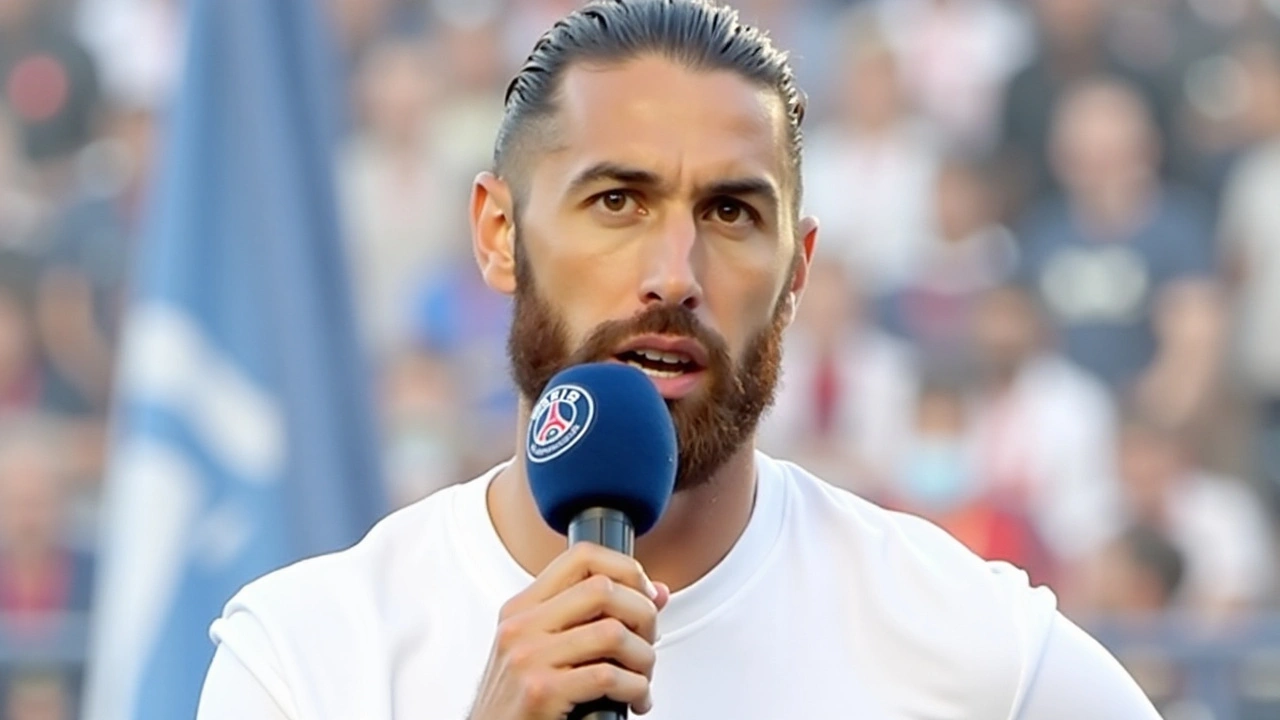The football world watched with bated breath as Éder Militão, an integral pillar in Real Madrid's defense, took a painful dive on the pitch, leading to a season-ending ACL injury. This unexpected setback has thrust the club into a frenetic quest for defensive reinforcements ahead of their looming fixtures. As managers scramble and strategists pore over potential options, the vital question reverberates through the corridors of Santiago Bernabéu: Will Real Madrid consider re-signing their stalwart and former captain, Sergio Ramos, or is it wiser to wait until the January transfer window for a more calculated addition?
Real Madrid's current predicament offers two primary routes of action. The first option is the immediate signing of a free agent, a decision that would rapidly patch the gaping hole in their defensive lineup caused by Militão's absence. Sergio Ramos, now 38, commands a wealth of experience and tactical acumen, which could seamlessly integrate with the existing squad dynamics. His name naturally surfaces in discussions, given his previous tenure and celebrated achievements with the club.
Sergio Ramos, with his iconic leadership and a career richly intertwined with Real Madrid's history, seems an obvious and nostalgic choice. However, whispers of discord between Ramos and club president Florentino Pérez cast a shadow over a potential reunion. Despite any lingering resentment from past misunderstandings, Ramos's return finds eager proponents among the Madridistas. Supporters believe his tactical prowess on the field, paired with his fiscal advantage of arriving on a free transfer, offers a compelling resolution to the club's immediate issues.
Nevertheless, practical considerations must temper emotional inclinations. Ramos, having recently exited Sevilla, is a free agent, but his age and recent form are factors that Real Madrid's decision-makers must weigh prudently. With younger talents like Antonio Rüdiger and Aurélien Tchouaméni currently holding the fort, is this seasoned veteran the right choice, or would his arrival simply stall the progress of their nascent trajectories?
Beyond the allure of Ramos, Real Madrid's scouting radar marks other potential free agents. Among these are Simon Kjaer, Álvaro González, and Omar Rekik. Yet, none capture the imagination nor fit the club's tactical framework quite like Ramos. These players, available without transfer fees, are considered competent, but doubts linger about their adaptability to the unique pressures of Real Madrid's high-stakes competitive environment.
The possibility of signing someone like Kjaer or González, who possesses substantial experience, especially in European competitions, cannot be categorically dismissed. However, the intricate alignment between the club's immediate needs and their broader vision for sustained excellence calls for more than just an ad-hoc solution.
The second path lies in patience, waiting diligently for the January transfer window—a strategic nod to prudence and foresight. Real Madrid's scouting network reportedly has identified potential targets who could bolster their back line while aligning with the long-term vision of the club. The benefits here include the opportunity to scrutinize available talent more meticulously and align acquisitions with both tactical and cultural aspirations.
Indeed, this route gives Real Madrid more control over their choices without the urgency or constraints imposed by immediate necessity. However, it also demands the current squad to hold the line, challenging the resilience and resourcefulness of Rüdiger, Tchouaméni, and the rest of the team in extending their collective prowess to cover the defensive lapses brought about by Militão’s absence.
In embarking upon this crucial decision, Real Madrid finds itself at a crossroads, where impulsiveness could leave long-term wounds, just as undue caution could miss transformative opportunities. The return of Ramos, although possibly serving as a salve to immediate defensive vulnerabilities, must be measured against the broader philosophical and strategic ethos of the club under current leadership.
Similarly, placing trust in the January window presumes that the existing squad’s depth and resilience will suffice in weathering competitive storms until reinforcements can be practically integrated. Diverse opinions within the club and the legion of fans further amplify the complexity of the decision at hand.

For Real Madrid, famed for its storied history and perpetual quest for glory, every decision holds the potential to redefine trajectories. Whether choosing Ramos, embracing the familiarity of his caliber alongside the inherent risks of rekindled partnerships, or opting for a strategic delay until January to make a more informed selection, the outcome will reflect the club’s underlying philosophies and aspirations.
Thus, as Santiago Bernabéu echoes with the chants of its fervent supporters, eagerly anticipating the club’s next move, the decision-makers must balance ambition with prudence, immediate gains with lasting goals. Potentially, Serge Ramos’ return or another strategic signing could serve to not merely fill the void left by Militão but to propel the club toward renewed triumphs. Whatever path they tread, this juncture could very well carve new pages in the annals of Real Madrid lore.
Write a comment